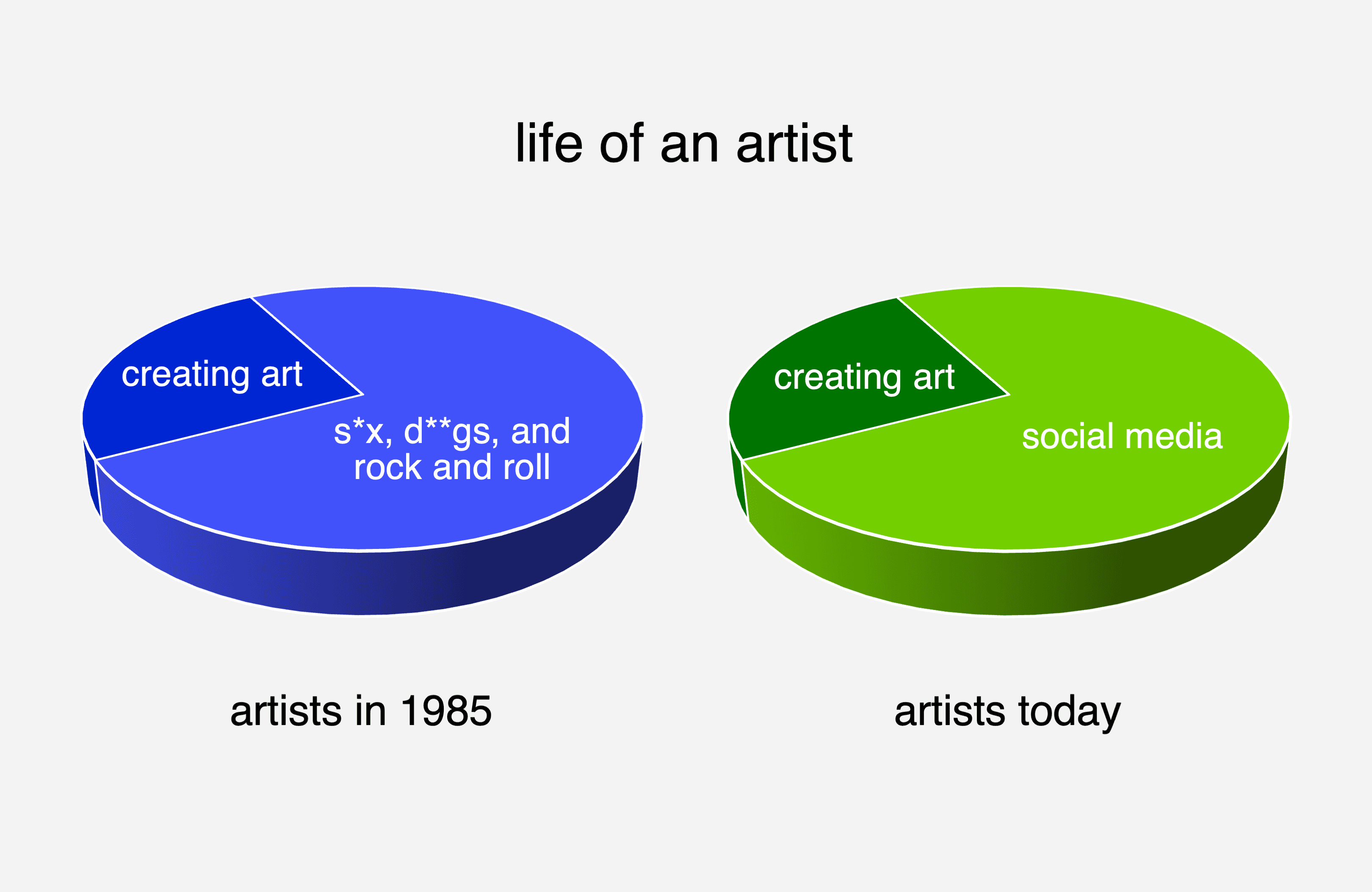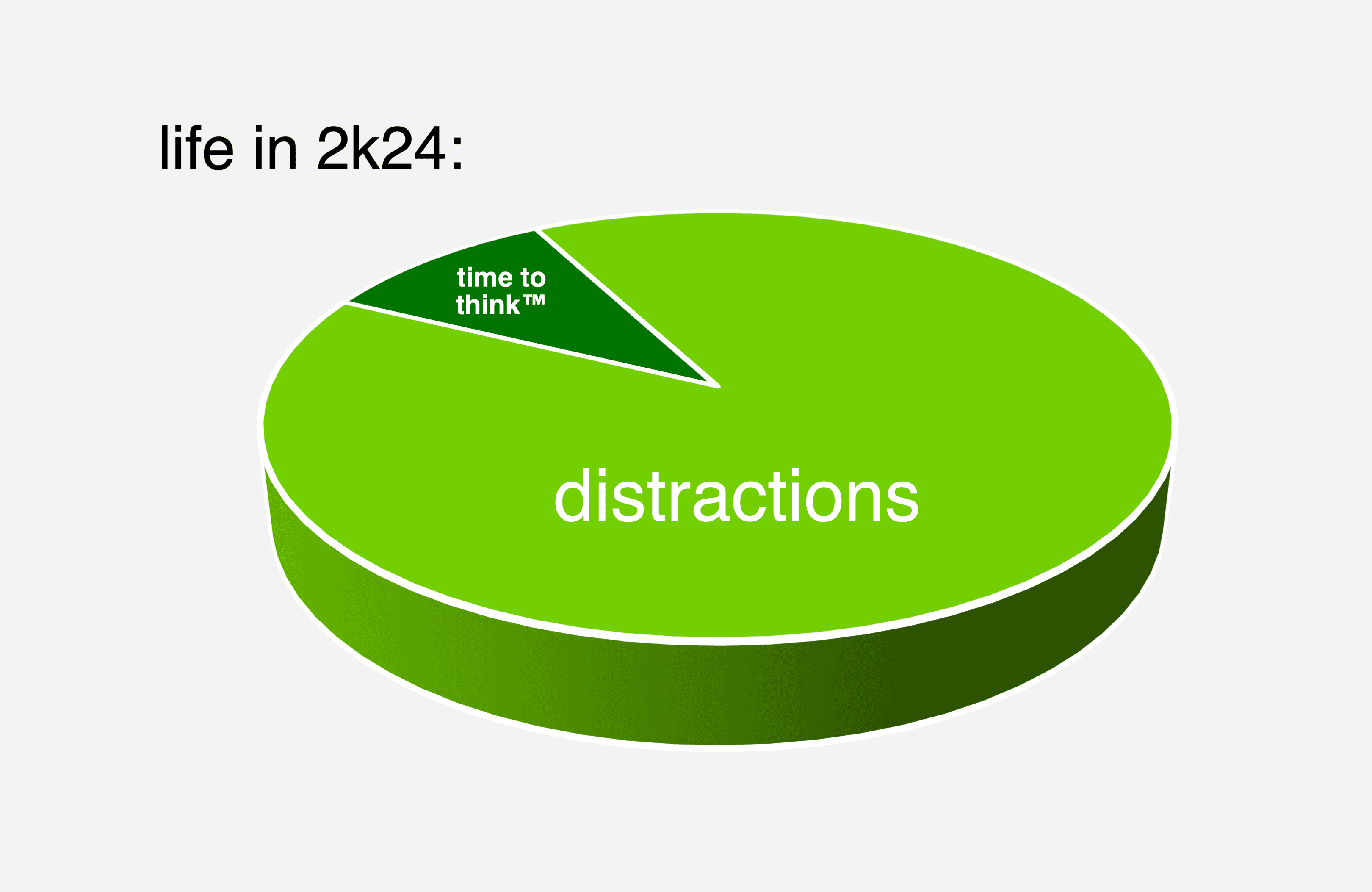
Wake up babe, it's 2024. 15-second videos are officially everywhere. TikTok, Instagram Reels, YouTube Shorts, every major tech giant has gotten its own short-form content platform (ever heard of Linkedin Video?). We're plagued by countless bite-sized interruptions and infected by short attention spans.
Now, I'm not saying this is entirely a bad thing. It isn't. In fact, I'm in love with social media. I love socializing with friends online, having a good laugh, and even just some time to zone out from challenging academic work.
A realization happened when I came across this graphic a while ago:

Okay, not really. I designed my own version of it.
Amidst all the stolen memes, Kanye rumors, iPhone 16 leaks, "jus know, jus know" and "hey pookie" TikTok dances, we've lost something on the way.
We've lost our time to think.
But there's a problem. We've not spent a single moment less thinking and pondering. In fact, our brains are more active than ever. We're always thinking.
So where's the difference? How have we lost the time to think? Our mind struggles to calm down and focus on what's important. It's our attention span.
When the 1985 artist decided to put on a winter coat, and go out for an afternoon walk in the woods for hours on end, where were we?
When they smoked a cigarette, mindlessly looking out the window, exploring their own thoughts, watching the world outside, where were we?
When they doodled in the margins of a forgotten sketchbook, wandering through memories and dreams, where were we?
Our lives lack dreaming, more deep thinking which will get us somewhere. We're capable of pondering great problems, yet we're using it to consume distractions.

So what's the cure?
Let's not pretend we're about to toss our phones in a bonfire and start journaling by candlelight. We've embraced this chaos, maybe even learnt to fall in love with it. But here's the thing: if the noise is here to stay, we need to learn how to live above it.
When was the last time you let your thoughts truly wander? Not to the latest gossip or the horror of unopened emails, but to something… bigger. The kind of wandering that doesn't have a destination, where you carve out something new without realizing it.
The internet isn't going anywhere. It could be just as easy as reclaiming the cracks in your day. Doodling nonsense on a blank notebook page. Staring out the window like you're in your own movie. Walking nowhere in particular. Giving ideas a space to breathe.
We've traded reflection for reaction, depth for distraction. Scrolling might feel like thinking, but it's not. The real challenge, is finding a way to think deeply in a world designed to keep you shallow.
After all, the next great solutions to humanity's problems won't emerge from a 15-second video.
